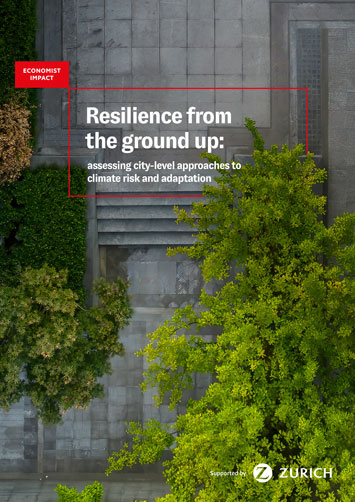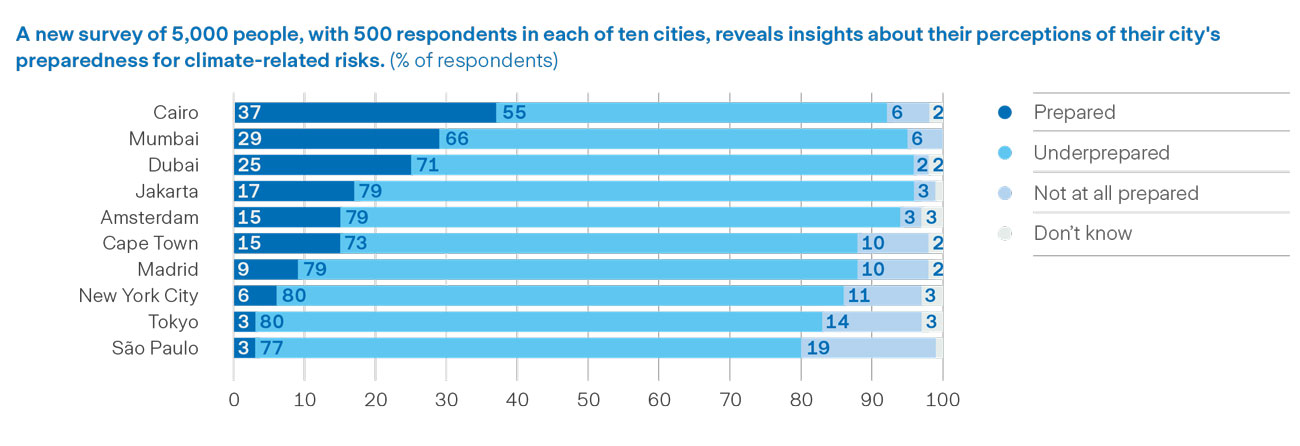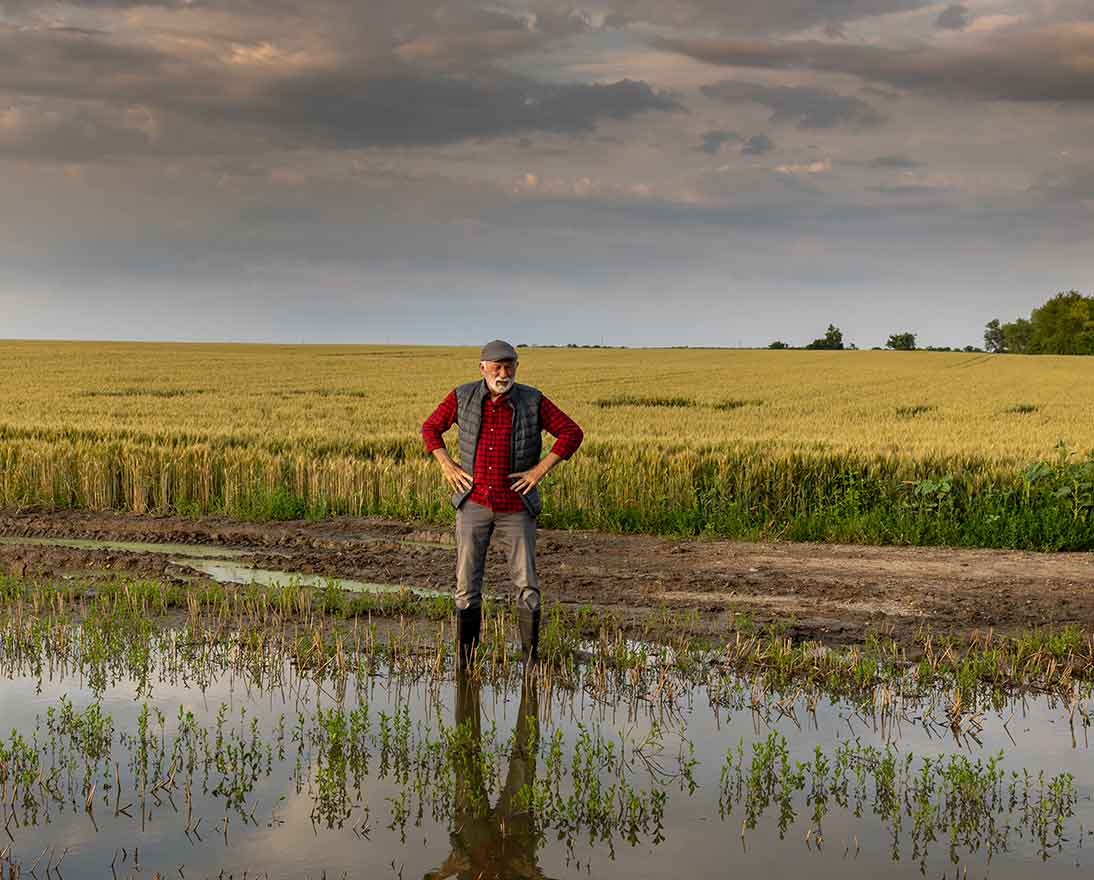Resilience from the ground up: assessing city-level approaches to climate risk and adaptation
Climate resilienceReportOctober 21, 20243 min read
Climate change is pushing cities, communities and ecosystems to the brink. Extreme weather events like heatwaves, floods and wildfires are becoming more frequent, intense and unpredictable, posing significant risks to the environment, economy and public health.
Cities, as hubs of people, infrastructure, economic activity and culture, are at the heart of the climate crisis. While they can worsen climate risks, they can also guard against the worst impacts of climate change and offer creative solutions to adapt and build resilience. Engaging residents in climate planning can help cities shift from reactive responses to proactive resilience. Yet, residents’ perspectives on climate risks and solutions are seldom explored.
Zurich Insurance Group (Zurich) has supported new Economist Impact research addressing climate change in urban environments worldwide and providing actionable insights for building resilient cities.
This research was originally published on Economist Impact.
The report, Resilience from the ground up: assessing city-level approaches to climate risk and adaptation is based on a literature review, a general population survey and interviews with 15 climate experts from reputable organizations such as the World Economic Forum, the International Labour Organization and the UN-Habitat. The survey solicited opinions from 500 respondents each in Amsterdam, Cairo, Cape Town, Dubai, Jakarta, Madrid, Mumbai, New York City, São Paulo and Tokyo. The gender divide was 45% female and 55% male, all age 18 or older.
This study also explores residents’ views on who should lead climate resilience efforts and the steps they need to take to build more resilient cities.
The key findings of the research include:
- City preparedness: Four in five respondents believe their city is underprepared for climate-related risks, with major concerns about heatwaves, air pollution, water shortages and flooding.
- Water management: Over 41% of respondents feel their city's water management infrastructure is at risk, underscoring the urgency of addressing water-related climate challenges such as water shortages and flooding.
- Inequalities: Climate change impacts vary significantly across gender, age and socioeconomic groups, disproportionately affecting women, children, the elderly and vulnerable populations.
- Government responsibility: A majority of respondents expect national and local governments to lead on climate adaptation efforts, highlighting the need for coordinated action.
- Corporate action: While 28% of respondents believe businesses should lead on climate adaptation, 58% feel companies are not doing enough.
- Individual efforts: Nearly a third of respondents feel personally responsible for climate adaptation, with 95% taking or planning steps to increase resilience. However, high costs, insufficient knowledge and lack of trust in government policies are significant barriers.
Read the full report
Download the full report to explore all the findings in more detail.


Read more about selected findings for each city here: City profiles
Explore an overview of all findings here: Infographic




